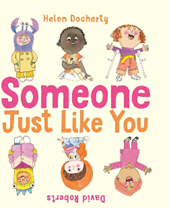Y6 lesson Nen and the lonely fisherman by Ian Eagleton and James Mayhew
No
Outsiders lesson plan Y6
|
Text: Nen and the lonely fisherman by Ian
Eagleton and James Mayhew Lesson plan by Andrew Moffat |
|
Enquiry question: How do laws affect me and my
rights? |
|
RSE links: the
importance of respecting others, even when they are very different from them
(for example, physically, in character, personality or backgrounds), or make
different choices or have different preferences or beliefs Universal Declaration of Human
Rights links: Article 7 All are equal before the
law and are entitled without any discrimination to equal protection of the
law Article 19 Everyone has the right
to freedom of opinion and expression |
|
Starter: What equality laws do we have in
the UK (The Equality Act 2010 – what’s it about, who does it protect?) Does
every country have laws like the Equality Act? Does every country have laws
that protect LGBTQ+ people? Can anyone think of any examples of places where
being openly LGBT+ does not give a person equal rights? Recently Hungary made
international news by passing a law that banned depiction of LGBTQ+ people in
books or on TV for under 18s (check understanding of that phrase) This year in Poland many councils
have passed legislation to make them “LGBT-free zones”. The President Andrzej
Duda said in his 2021 election campaign that he wanted to “defend children
from LGBT ideology” and opposes gay marriage and adoption by gay couples
(what does that mean, what is this language suggesting about LGBT+ people
here?) |
|
Main: Read “Nen and the lonely fisherman”. Put
these questions on the board to discuss after the book: -
What is the story about? -
Why do you think the author wrote it? -
What would the governments of Poland / Hungary say about this book? -
Do you think this book is currently read in schools in Hungary or
Poland? Feedback, discussion and then debate
these questions: -
Is the book depicting LGBTQ+ people? (the words LGBTQ are not used,
there is no gay wedding, are you sure?) -
If Earnest is gay (and be careful here – he hasn’t told us he is gay
so we shouldn’t assume he is or label him) why didn’t the author chose to tell
us this information? Why isn’t the reader told that characters are gay or
straight? -
So, could this book be read in schools in Hungary or Poland? Look at
the wording of the laws – would this book be allowed? |
|
Activity: The Hungarian president Viktor
Orban made this statement: “There are contents
which children under a certain age can misunderstand and which may have a
detrimental effect on their development at the given age, or which children
simply cannot process, and which could therefore confuse their developing
moral values or their image of themselves or the world,” Read and discuss this
statement – what does it mean. What are “moral values”? Who chooses the moral
values we live under? How do you think this statement might affect teachers
in Hungary who want to read ‘Nen and the lonely fisherman’? Children compose a letter to the president of Hungary
addressing his comments and using Nen and the lonely fisherman to back up
their argument. Should teachers in schools in Hungary be allowed to read “Nen
and the lonely fisherman” to children? Children might of course choose to agree
with the president, which is fine, but they should still use the text and
explain the reasons for their decision. Children should think about how the
law in Hungary would affect them if they lived there. |
|
Plenary: Do you think everyone in Poland
and Hungary agrees with the laws their government has passed? Does everyone
in the UK agree with our government all the time? (Brexit, Free School Meals,
Lockdown) What do you think is happening in Hungary and Poland as a result of
the new laws? Ask children what they think these photos show. These photos show people in Hungary and Poland protesting in support of LGBTQ+ people in 2021. What would they say about Nen and the lonely fisherman? What can people in the UK do to support equality in other countries? Think about the person in charge of laws in the story. How does Pelagios feel about Earnest at the start of the story? Is Nen breaking any laws in this story? We don’t know if Pelagios changes his mind at the end; do you think he does? What laws might Pelagios pass at the end of the story for the world under the sea?
|






Comments
Post a Comment